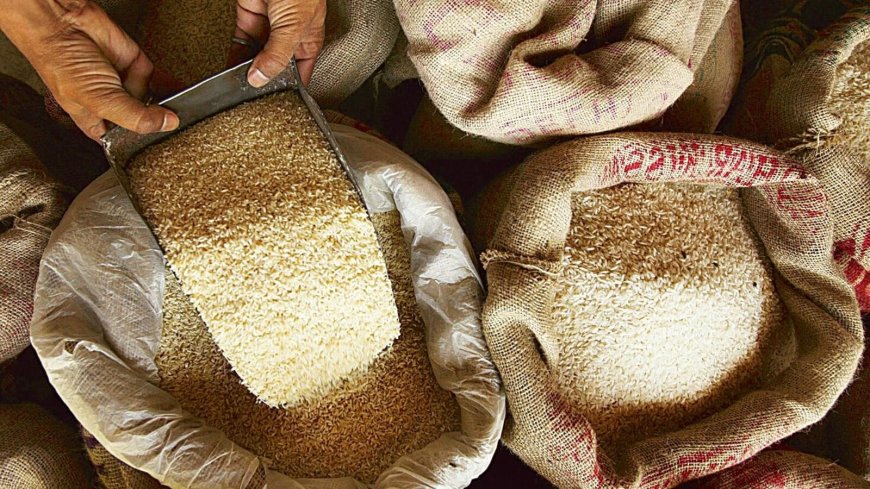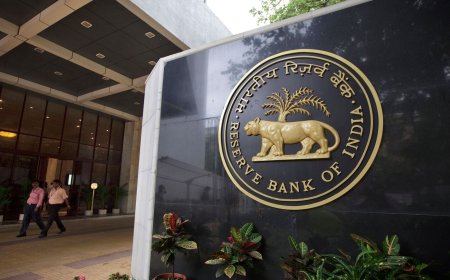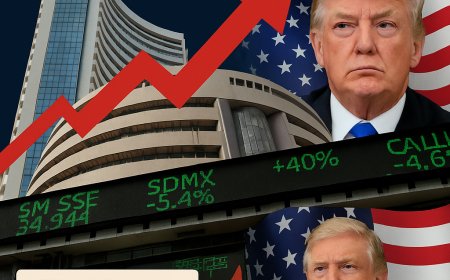Israel-Iran War: Adani Wilmar, GRM Overseas to Kaveri Seeds — Why Are Rice Exporter Stocks Under Pressure?
Rice exporter stocks like Adani Wilmar, GRM Overseas, and Kaveri Seeds are under pressure as the Israel-Iran conflict stokes fears over freight costs, insurance premiums, and demand.

New Delhi, June 19, 2025 — Tensions flaring in the Middle East have sent ripples across global commodity markets, and India’s rice exporter stocks are among the unexpected casualties. Companies like Adani Wilmar, GRM Overseas, LT Foods, Chaman Lal Setia Exports, and Kaveri Seed Company have seen notable declines in share prices over the past few trading sessions as the Israel-Iran conflict stirs uncertainty over global food supply chains, insurance premiums, freight routes, and demand forecasts.
Middle East Conflict Disrupts Supply Chain Sentiment
The recent escalation in hostilities between Israel and Iran has reignited fears of prolonged instability in the Strait of Hormuz and surrounding sea lanes—vital arteries for global trade. While rice is not a sanctioned commodity, the conflict's broader impact on maritime logistics, oil prices, and insurance costs is affecting agricultural exporters’ bottom lines.
According to Santosh Mehta, Senior Analyst at Axis Securities, “Geopolitical tensions in the Gulf create direct and indirect challenges for Indian exporters. Rice exporters in particular rely heavily on routes through the Arabian Sea and Red Sea for shipping to the Middle East, Africa, and parts of Europe. Any disruption or increased cost of freight impacts competitiveness.”
Stock Reactions Reflect Broader Concerns
-
Adani Wilmar, a diversified player in the edible oil and agro-product segment, witnessed a drop of nearly 4.5% this week, largely attributed to concerns over its exports to West Asia.
-
GRM Overseas, a key exporter of Basmati rice, fell around 6.2% amid worries over shipment delays and reduced profitability.
-
LT Foods, known for its Daawat brand, lost 3.9% over three sessions despite a strong quarterly performance.
-
Kaveri Seed Company, though primarily a seed producer, experienced a mild correction of 2.5%, driven by sector-wide bearish sentiment.
“Investors are pricing in higher insurance premiums, potential vessel rerouting, and delayed payments from Middle Eastern buyers,” said Vibha Sharma, Agro Sector Specialist at Edelweiss. “Even if there's no direct export ban or disruption yet, the anticipatory sentiment alone can create a downward trend.”
Export Dependency on West Asia and Africa
India is the world’s largest rice exporter, accounting for more than 40% of global shipments, with Basmati rice being a major component of the trade. In FY24, India exported over 17 million tonnes of rice, including nearly 4.5 million tonnes to Middle Eastern countries such as Saudi Arabia, Iran, Iraq, and the UAE.
These regions are among the largest consumers of Basmati rice and also depend on imports to meet their food needs. With the conflict threatening port access or regional demand, Indian rice companies are bracing for a potential slowdown.
“There’s also a fear that if tensions escalate, countries like Iran may reduce import volumes either due to domestic disruptions or economic constraints from further sanctions,” noted Ajay Khemka, Director at Basmati Trade Network.
Insurance and Freight Costs Spike
One of the immediate concerns for exporters is the sharp rise in marine insurance premiums. Cargoes headed to high-risk areas are now attracting war-risk surcharges, which have doubled in some cases. Additionally, freight costs have increased by 15-20% in the past month due to route diversions and port congestion.
“This significantly erodes profit margins for rice exporters, especially smaller players who don’t have long-term freight contracts,” explained Arun Goel, a Mumbai-based logistics consultant.
The impact is especially harsh on companies operating on thin margins, such as GRM Overseas or smaller regional exporters who lack pricing power to pass on these costs.
Forex Volatility and Demand Uncertainty
Adding to the stress is currency volatility triggered by global oil price spikes. A stronger dollar increases input costs for agro companies reliant on imported fertilizers or diesel, while also complicating hedging strategies.
On the demand side, importers are reportedly deferring large contracts until the situation stabilizes. According to industry insiders, tenders from Iran and Iraq for July shipments are being “kept on hold” or renegotiated.
“Buyers want to avoid the risk of shipments being stuck at sea or diverted. This has led to a temporary freeze in large-volume transactions,” said a Delhi-based rice trader who declined to be named.
Investor Outlook: Short-Term Headwinds, Long-Term Demand Intact
Despite the current selloff, analysts believe the fundamentals of India’s rice export industry remain strong. Global rice demand is resilient, and India’s competitive pricing and favorable monsoon forecasts are positives for the medium term.
However, short-term headwinds — including higher logistics costs, payment risks, and trade delays — may keep investor sentiment muted. Analysts advise caution while entering rice exporter stocks unless volatility reduces.
“We expect the situation to normalize over the next two quarters, but any further military escalation or shipping embargo could deepen the impact,” said Sharma of Edelweiss. “For long-term investors, this could be a buying opportunity once dust settles.”
The Israel-Iran war, though geographically distant, is having real-time implications for Indian agro-exporters. With rice being a sensitive commodity in global food trade, any disruption in supply chains or demand patterns due to geopolitical tensions can lead to swift market reactions. For now, rice exporter stocks are caught in the crossfire of uncertainty, awaiting clearer signals from both the battlefield and the seas.
What's Your Reaction?
 Like
0
Like
0
 Dislike
0
Dislike
0
 Love
0
Love
0
 Funny
0
Funny
0
 Angry
0
Angry
0
 Sad
0
Sad
0
 Wow
0
Wow
0













































































